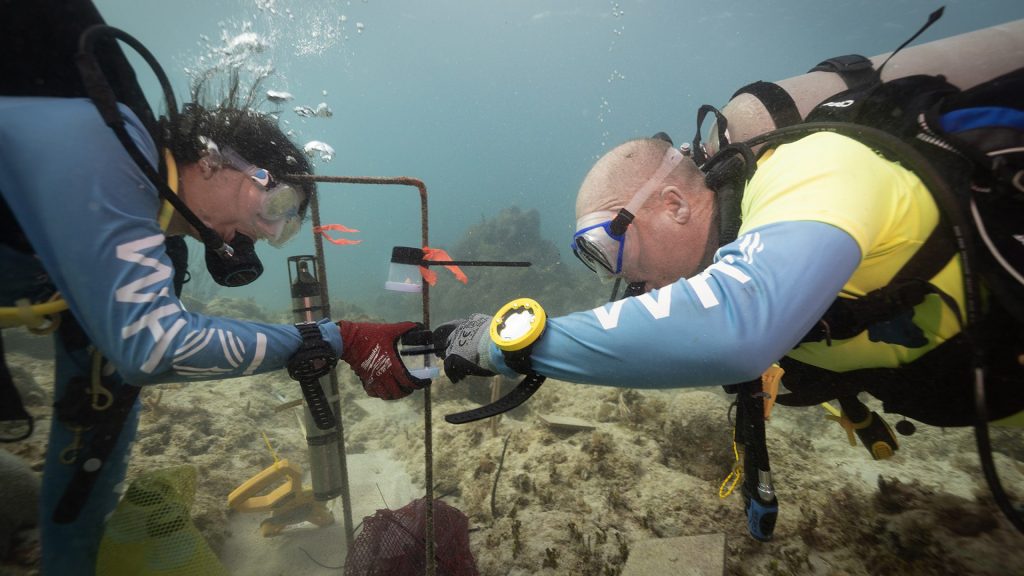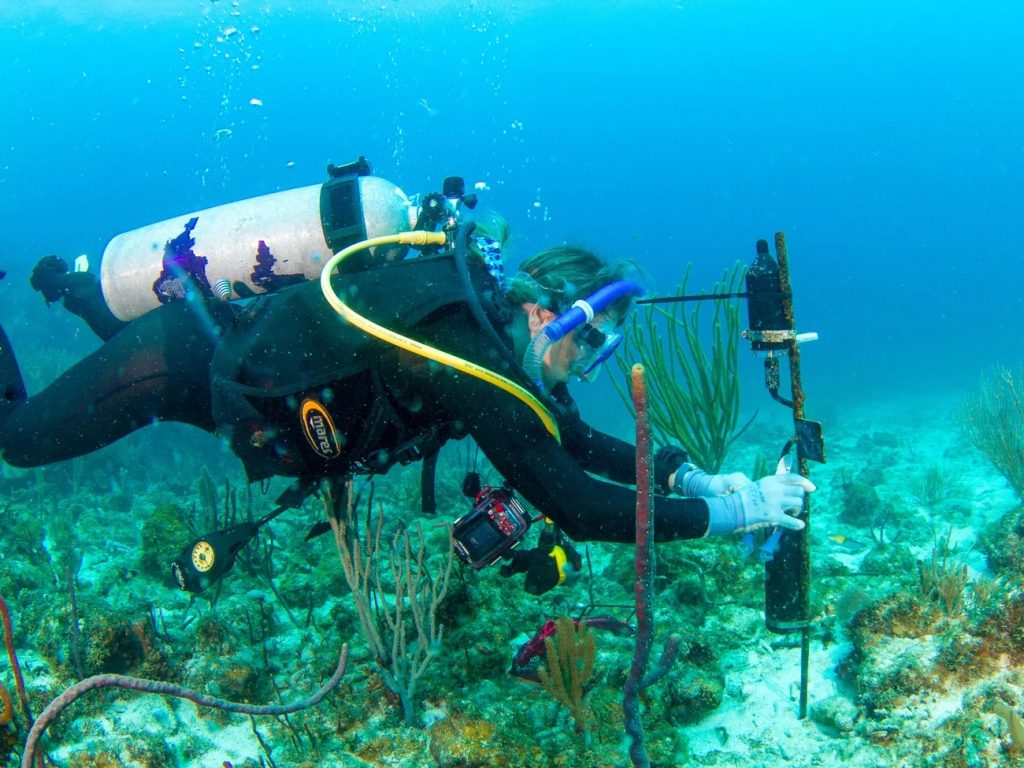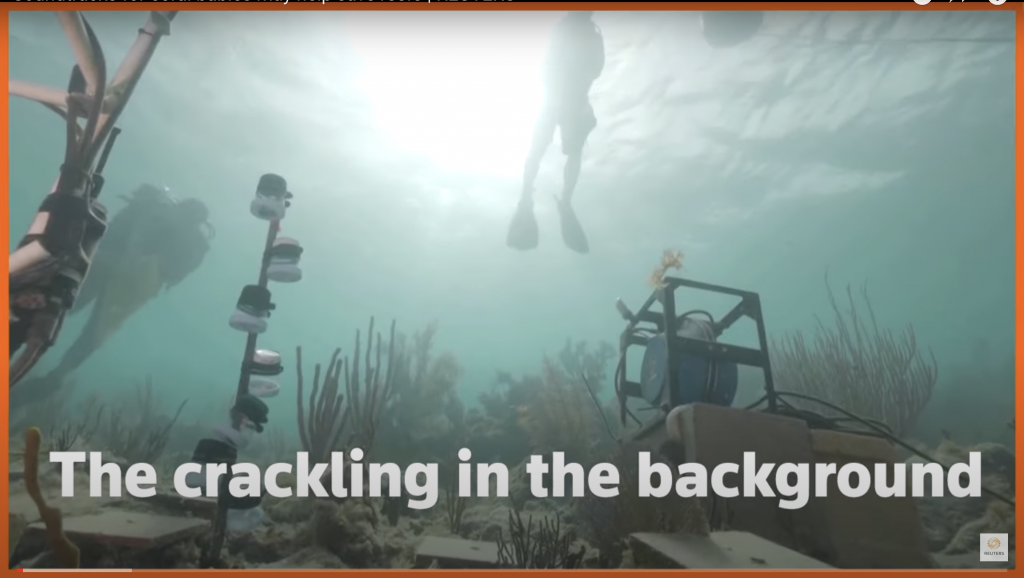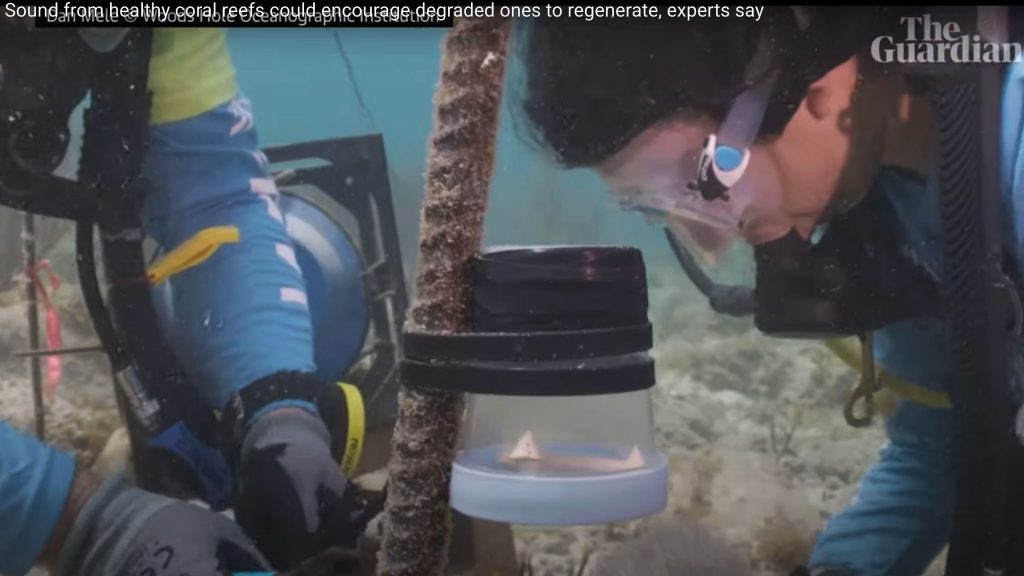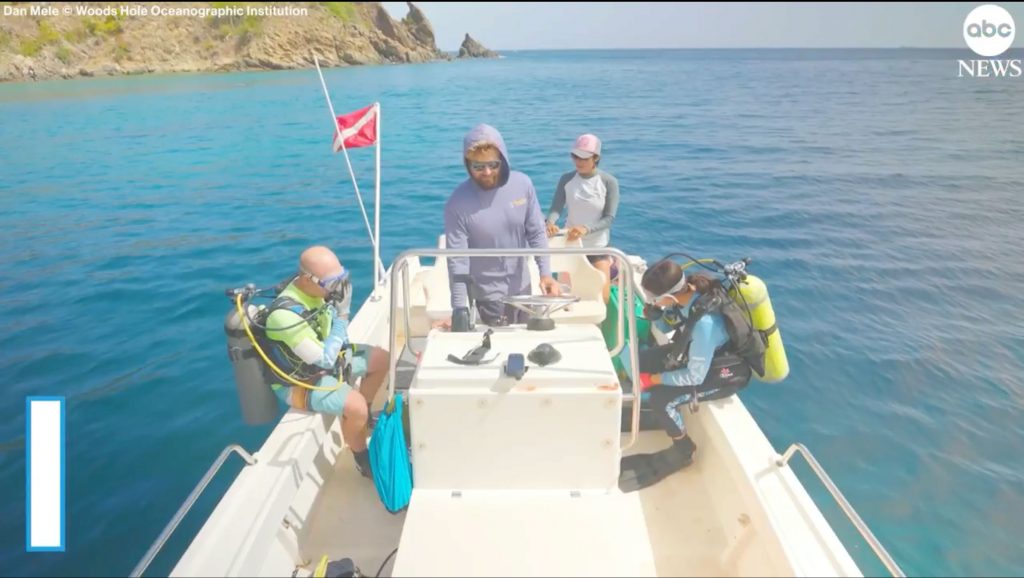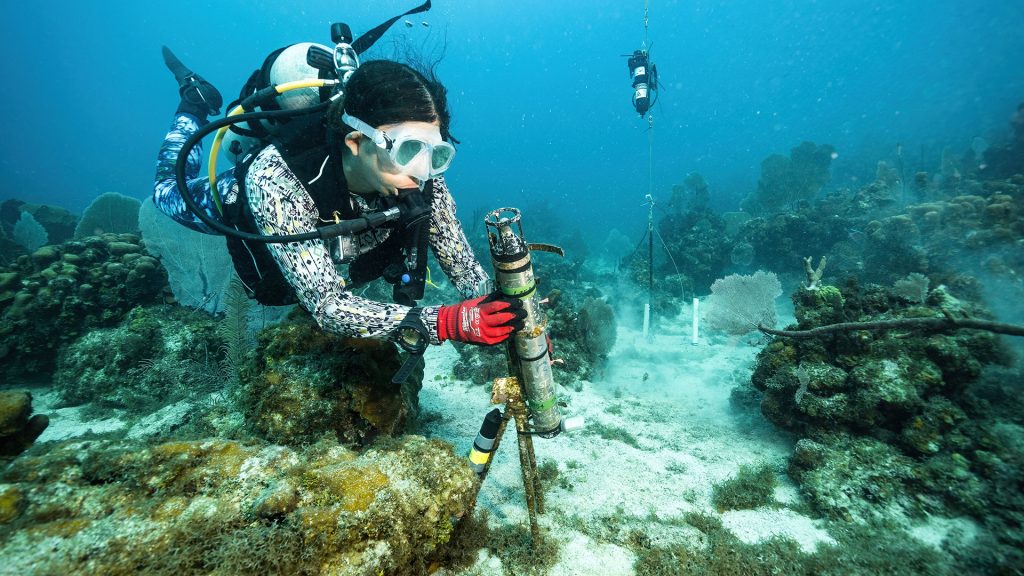Posts by Ken Kostel
New study highlights the correlation between live corals and fishing yields
What does a decline in healthy coral reefs mean for fisheries? A new study published in Marine Resource Economics examines the correlation between fish yield and live coral habitats. Results show that substantial losses could occur if the restoration of coral reefs is not prioritized. Read more
Read MorePBS Nova Building Stuff: Change It!
The Reef Solutions team and their work in USVI took center stage in a recent episode of the PBS Nova series “Building Stuff.” Learn more about how we’re working to turn back the tide on reef declines with some unique and powerful tools. Watch now
Read MoreNew funding will boost vital reef restoration work
Woods Hole, Mass. (Oct. 2, 2024) – Researchers from the Woods Hole Oceanographic Institution (WHOI), along with partners, have received a grant totaling $1.5 million to advance innovative solutions that can protect the future of corals in the face of climate change and other environmental challenges. WHOI’s Aran Mooney, associate scientist in the Biology Department, and Weifeng “Gordon”…
Read MoreWHOI and the University of the Virgin Islands extend Partnership
WHOI and the University of the Virgin Islands (UVI) have entered into a Memorandum of Understanding (MOU) extending their working partnership in the exploration, study, and protection of the world’s oceans. READ MORE
Read MoreNew study from Woods Hole scientists suggests sound could help restore coral reefs (WCAI)
Purring fish and snapping shrimp. Croaks and pulses from a chorus of fish. Those are some of the noises that make up the soundscape of a healthy coral reef. Local scientists at Woods Hole Oceanographic Institution (WHOI) have been studying if these sounds could be a tool to help restore damaged reefs. Read more
Read MoreThere’s a difference between the sound of a healthy coral reef and a degraded reef (NPR)
Scientists working off the U.S. Virgin Islands found that the sounds of a healthy coral reef, played on underwater speakers, could encourage a degraded reef to regenerate. Listen now
Read MoreSoundtracks for coral babies may help save reefs (REUTERS)
As the world faces yet another mass coral bleaching this year, some scientists may have found a way to help degrading reefs by playing music to the ears of coral larvae. Watch now
Read MorePlaying thriving reef sounds on underwater speakers ‘could save damaged corals’ (Guardian)
Scientists working off the US Virgin Islands in the Caribbean found that coral larvae were up to seven times more likely to settle at a struggling reef where they played recordings of the snaps, groans, grunts and scratches that form the symphony of a healthy ecosystem. Read more
Read MoreScientists are using underwater speakers to help restore degraded coral reefs: Study (ABC)
Researchers have discovered a new method that could encourage the restoration of degraded coral reef populations, which have been declining around the world due to record-high marine temperatures. The sounds of a healthy reef could be used to encourage coral larvae to recolonize damaged or degraded reefs, according to a study published in the journal Royal…
Read MoreThe Sound of (Reef) Music
In the fight to save corals, the solution may lie in sound. Woods Hole Oceanographic Institution (WHOI) associate scientist Aran Mooney learned that some rainforest researchers turned to studying noise to determine the health of these threatened environments. He hypothesized a similar connection between sound and the health of reefs. Reefs are every bit as…
Read More





